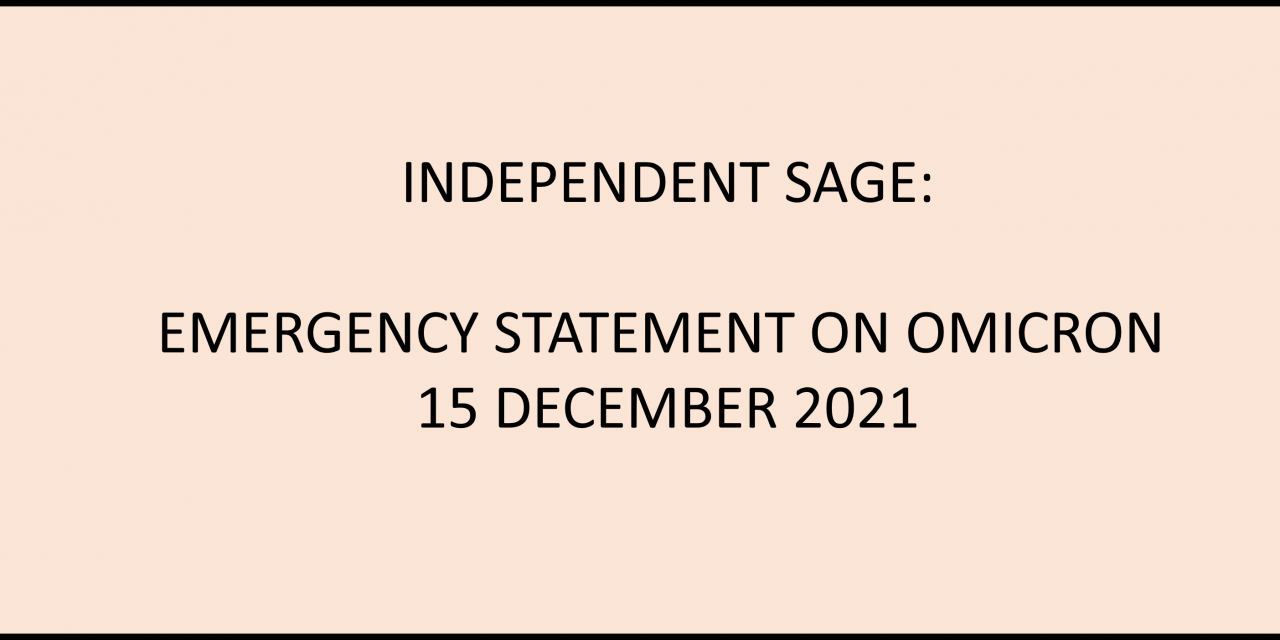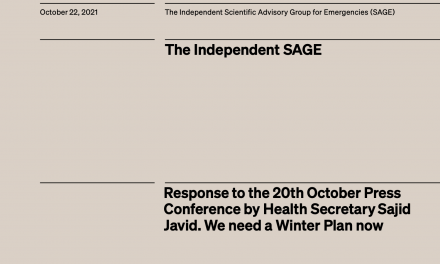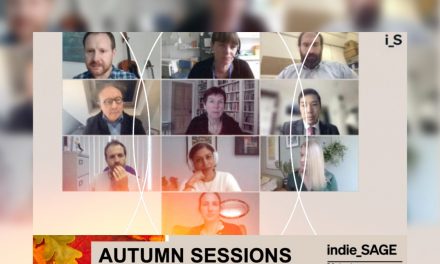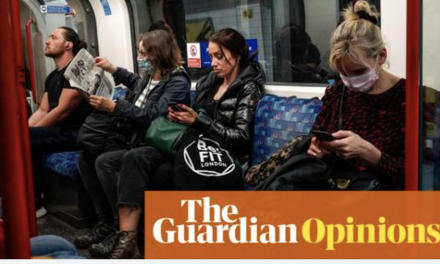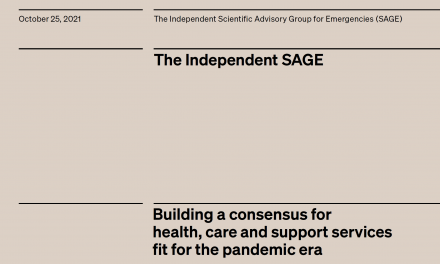The first articles alerting the world to a new variant, later designated Omicron, appeared only three weeks ago. It is now on course to become the world’s dominant variant. Omicron cases have been doubling in England about every 2 days. We are starting to see the consequences in daily case numbers (with record new cases reported today). Unfortunately, very few measures are in place to prevent its further spread and we are still just at the beginning of the Omicron wave as it becomes dominant in England this week.
Christmas is 10 days away – that’s 5 doublings at its current growth rate, making the situation potentially 32 times worse by then. Even if growth slows, the situation would still be much worse than now. Every day we wait adds more cases and more eventual burden on the NHS and, sadly, more deaths. Even if Omicron has a lower case-to-hospitalisation rate compared to Delta, SAGE SPI-M modelling suggests we could still see levels of hospitalisations as high as in previous waves due to the sheer increase in cases. High infection burden will also cause enormous disruption in society as many key workers fall ill at a time when the NHS will face unprecedented demand – indeed, current evidence points to NHS primary and secondary care in extreme distress.
The opportunity for early action has been lost and the time for further delay is over. The situation is so urgent we must take emergency action now and that means it is imperative to reduce contacts. Advice is no longer enough since it does not convey the urgency of the situation.
Accordingly we now call for an immediate circuit break to then enable limited mixing from the 25 to 28th December. All measures should be re-evaluated over that period to determine what needs to happen after Christmas. The short circuit break should include:
- A return to Step 2 of the UK Government’s Spring roadmap where outdoor mixing, retail and outdoor hospitality remain open but indoor hospitality and entertainment are shut.
- No indoor gatherings between households of any size (excepting bubbled individuals and other roadmap exceptions).
- All close contacts of new cases must isolate for 10 days, with financial and practical support to do so.
- Adequate financial support for affected businesses
- Neither schools that choose to end term early nor parents who take their children out of school for the last few days of term should be penalised.
- Continuation of the concerted effort to get as many people vaccinated (particularly younger age groups for whom uptake is low) and boosted as possible.
The time between now and the New Year must also be spent preparing for a safer reopening, especially in schools, including ensuring safer air through ventilation and/or filtration. As Covid mutates to become increasingly infectious, fresh air is increasingly our best defence. Delaying funding for, and installation of, ventilation and/or air filtration yet again with the excuse that it’s not an immediate solution will be a mistake – if you don’t start, you guarantee you will never finish.
Finally, we should never forget that this is a global pandemic, and that low vaccination rates in any country increases the chances of new variants emerging. Vaccine patents should be waived and transfer of expertise and technology be assured to allow sufficient vaccine production in all regions of the world.

